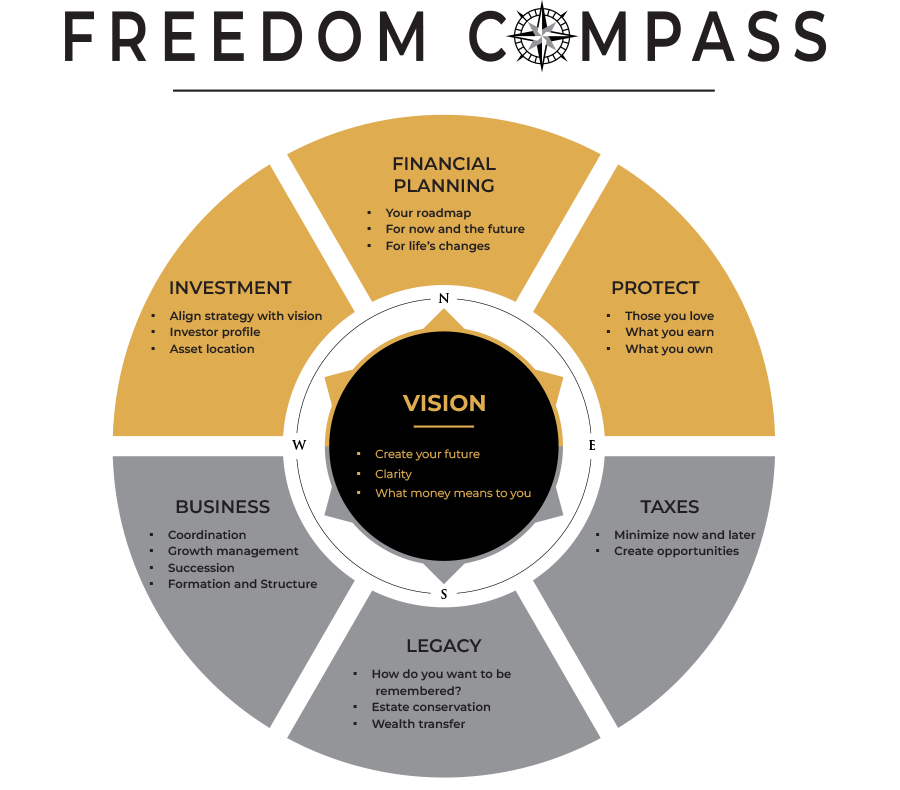Business Owners
The Phases of Business Ownership
These phases are characterized by different priorities, challenges, and financial considerations.
It's important to note that these phases are not strictly linear, and businesses may experience overlaps or unique circumstances. We must adapt our strategies and advice based on the specific needs and goals of each business at different stages of its maturity. By understanding the distinct challenges and opportunities of each phase, we can provide valuable insights and support to business owners, ultimately helping them achieve long-term success.
Phase I:Startup Phase
During the startup phase, the business is in its early stages of establishment. Key activities in this phase include developing a business plan, securing initial funding, and launching operations. As financial advisors, our role is to help the business owner understand and navigate the financial implications of starting a business. This may involve assisting with budgeting, cash flow projections, and helping them secure financing. Additionally, we may provide guidance on structuring the business, establishing financial systems, and managing tax obligations.
Capital Formation
Assisting in determining the initial capital requirements and advising on potential funding sources such as personal savings, loans, grants, or investments.
Financial Planning
Creating a comprehensive financial plan that outlines revenue projections, expense management, and cash flow forecasts to support the business's growth and sustainability.
Entity Structure
Providing guidance on selecting the most appropriate legal structure (e.g., sole proprietorship, partnership, LLC, corporation) based on factors like liability protection, tax implications, and future growth plans.
Budgeting and Cost Control
Assisting with budgeting strategies, cost management, and implementing financial controls to optimize resource allocation and minimize unnecessary expenditures.
Phase II:Growth Phase
The growth phase is marked by an expansion in the business's operations and customer base. The primary focus during this phase is on scaling the business and increasing revenue. As financial advisors, our role shifts towards assisting the business owner in managing their financial resources effectively. This includes providing guidance on investment decisions, assessing expansion opportunities, and analyzing the financial impact of growth strategies. You may also assist in optimizing working capital, implementing financial controls, and developing financial forecasts to support sustainable growth.
Financing Strategies
Evaluating financing options for expansion initiatives, such as debt financing, equity financing, or reinvesting profits back into the business.
Risk Management
Developing risk management strategies, including insurance coverage and contingency plans, to protect the business from unforeseen events that could impact its financial stability.
Financial Analysis
Conducting in-depth financial analysis, performance reviews, and benchmarking to identify growth opportunities, optimize pricing strategies, and enhance profitability.
Cash Flow Management
Implementing robust cash flow management practices to support growth, including monitoring working capital, optimizing inventory levels, and managing accounts receivable and payable effectively.
Phase III:Maturity Phase
The maturity phase occurs when the business has reached a stable state of operations and has achieved its growth objectives. Revenue growth may slow down, but the focus shifts to enhancing profitability and maintaining a competitive edge. As financial advisors, we play a crucial role in ensuring the long-term financial health of the business. This may involve conducting financial analysis to identify areas for cost reduction and efficiency improvement, exploring diversification strategies, and evaluating options for business succession or exit planning. We may also provide guidance on tax planning, retirement planning for key stakeholders, and wealth management solutions tailored to the business owners' personal financial goals.
Investment and Asset Management
Assisting in investment decisions and providing guidance on asset allocation strategies to preserve capital, generate income, and achieve long-term financial goals.
Succession Planning
Collaborating on succession planning strategies, including transitioning ownership, leadership, and management roles within the business.
Retirement Planning
Advising business owners and key stakeholders on retirement planning strategies, including maximizing tax-efficient savings vehicles and developing exit strategies.
Tax Planning
Working in conjunction with tax professionals to optimize tax strategies and ensure compliance with changing tax laws and regulations.

|
